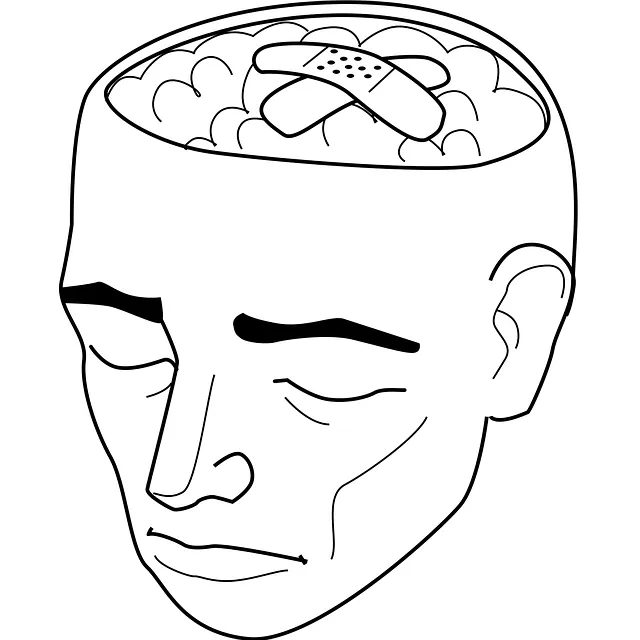Kaiser Trauma Therapy offers a holistic, non-pharmacological approach to healing from PTSD and other trauma-related issues, focusing on cognitive behavioral therapy, EMDR, mindfulness practices, and sensory integration. By addressing past traumas and integrating effective coping mechanisms like mindfulness meditation, this method enables individuals to regain control, achieve lasting healing, and foster emotional stability without relying on medications. Supported by professionals in trauma-informed care and connected to supportive communities through retreats, Kaiser Trauma Therapy creates safe spaces for profound transformation and rebuilt lives.
“Are you ready to rebuild your life and unlock a deeper sense of healing? This comprehensive guide takes you on a transformative journey towards personal growth. We explore the power of Kaiser Trauma Therapy, a groundbreaking approach to addressing past traumas. By understanding how these experiences shape us, we can begin to heal and move forward. Through identifying and confronting trauma, implementing effective coping strategies, and building a supportive network, you’ll gain the tools to reconstruct your life with resilience.”
- Understanding Kaiser Trauma Therapy: Unlocking Healing Potential
- Identifying and Confronting Past traumas: The First Step Towards Reconstruction
- Integrating Effective Coping Mechanisms for Long-Term Wellbeing
- Building a Supportive Network: Reconstructing Your Life with Strength and Resilience
Understanding Kaiser Trauma Therapy: Unlocking Healing Potential

Understanding Kaiser Trauma Therapy is a transformative step towards unlocking your healing potential. This approach leverages non-pharmacological techniques to address post-traumatic stress disorder (PTSD) and other trauma-related conditions, offering an alternative medicine path for those seeking trauma resolution through meditation. By focusing on mental and emotional processes, it facilitates the integration of traumatic memories, reducing their impact and enabling individuals to regain control over their lives.
Kaiser Trauma Therapy encourages patients to confront and process past traumas in a safe and controlled environment, using various methods such as cognitive behavioral therapy, eye movement desensitization and reprocessing (EMDR), and mindfulness practices. These non-pharmacological approaches to PTSD have shown remarkable effectiveness in helping individuals manage symptoms, regain a sense of normalcy, and achieve lasting healing without relying on medications.
Identifying and Confronting Past traumas: The First Step Towards Reconstruction

Identifying and confronting past traumas is a pivotal step in rebuilding your life. Many individuals carry unseen burdens from their past experiences, which can manifest as anxiety disorders, depression, or even post-traumatic stress disorder (PTSD). Non-traditional therapy for anxiety disorders offers innovative approaches, such as Kaiser trauma therapy, that focus on healing the mind and body holistically. This method goes beyond traditional talk therapy by incorporating techniques like mindfulness, meditation, and sensory integration to create a trauma-informed care environment.
By participating in trauma-informed care training for professionals, individuals gain valuable insights into how past traumas can impact current behaviors and relationships. Understanding these connections enables people to receive tailored support that addresses the root causes of their struggles. Incorporating alternative treatments alongside traditional therapy can provide much-needed relief for those dealing with PTSD symptoms, helping them move forward in their journey towards a fulfilling life.
Integrating Effective Coping Mechanisms for Long-Term Wellbeing

Integrating effective coping mechanisms is vital for long-term wellbeing when rebuilding your life after trauma. Kaiser trauma therapy emphasizes non-invasive recovery methods that empower individuals to navigate their healing journey at their own pace. This approach, backed by trauma-informed care training for professionals, prioritizes creating safe spaces where individuals feel understood and supported.
Mindfulness meditation for traumatic events has emerged as a powerful tool within this framework. By focusing on the present moment and cultivating non-judgmental awareness, mindfulness practices help to regulate emotions and reduce flashbacks or nightmares. Thus, these coping mechanisms not only alleviate immediate distress but also foster resilience, enabling individuals to rebuild their lives with enhanced emotional stability and clarity.
Building a Supportive Network: Reconstructing Your Life with Strength and Resilience

Rebuilding your life after a traumatic event can feel daunting, but it’s achievable with the right support system in place. One powerful tool for navigating trauma healing is Kaiser Trauma Therapy, which offers evidence-based approaches to help individuals process and overcome their experiences. This method encourages the development of resilience by teaching effective coping strategies.
Surrounding yourself with a supportive network is another key aspect of reconstruction. Connecting with like-minded people through trauma healing retreats near you can provide a sense of community and understanding. Sharing stories and experiences in a safe space allows individuals to realize they’re not alone on their journey towards recovery. The Kaiser method success stories are testament to the transformative power of these gentle ways to overcome trauma, showcasing the strength and resilience that can emerge when supported by a caring community.
Reconstructing your life after past traumas is a powerful journey of healing and growth. By understanding Kaiser Trauma Therapy and its potential, identifying and confronting past experiences, adopting effective coping mechanisms, and building a supportive network, you can unlock your resilience and forge a path towards long-term wellbeing. Embrace this process with courage and remember that healing is not just possible, but achievable.






